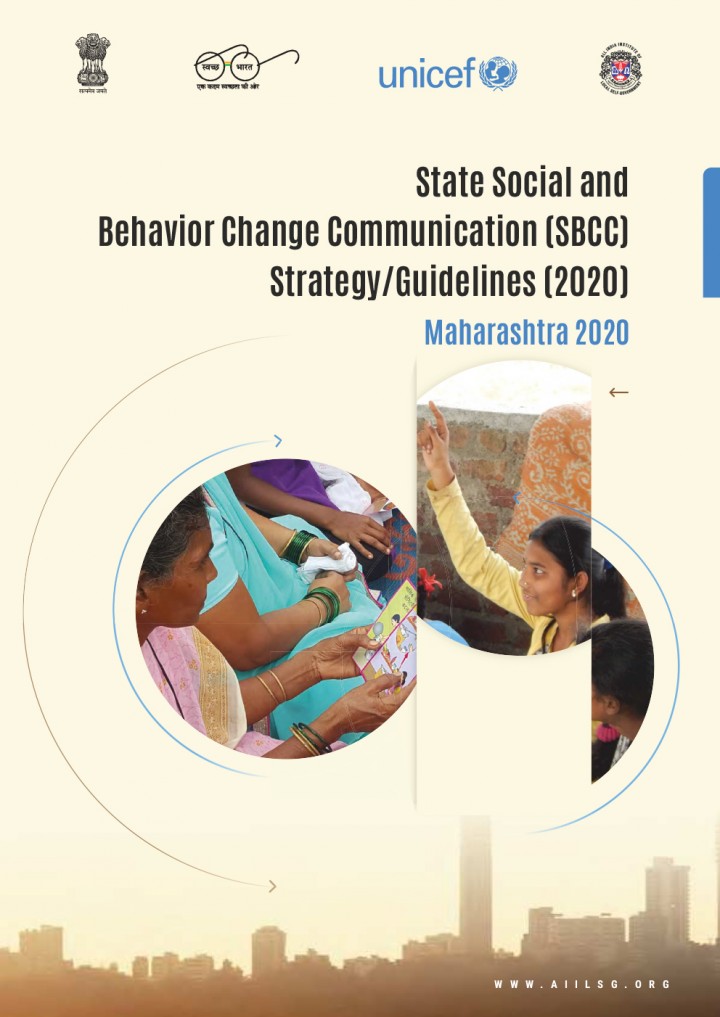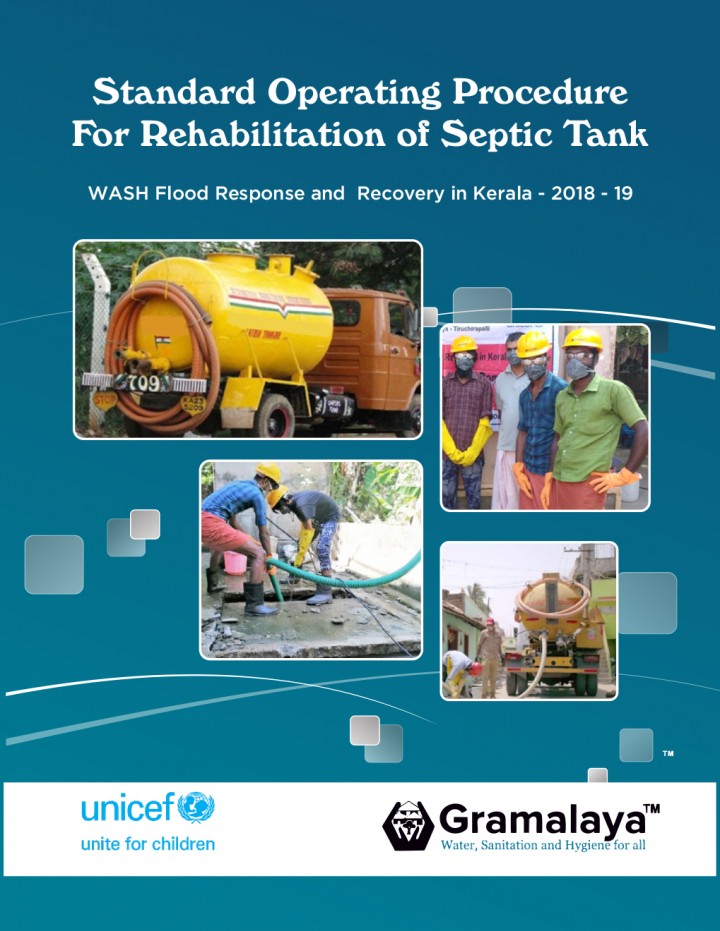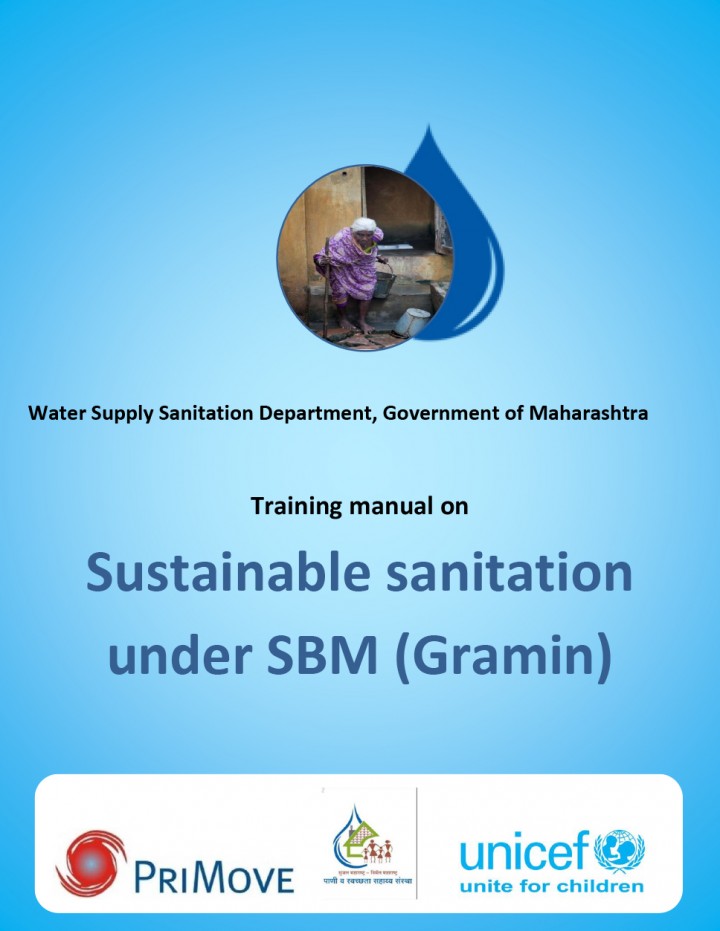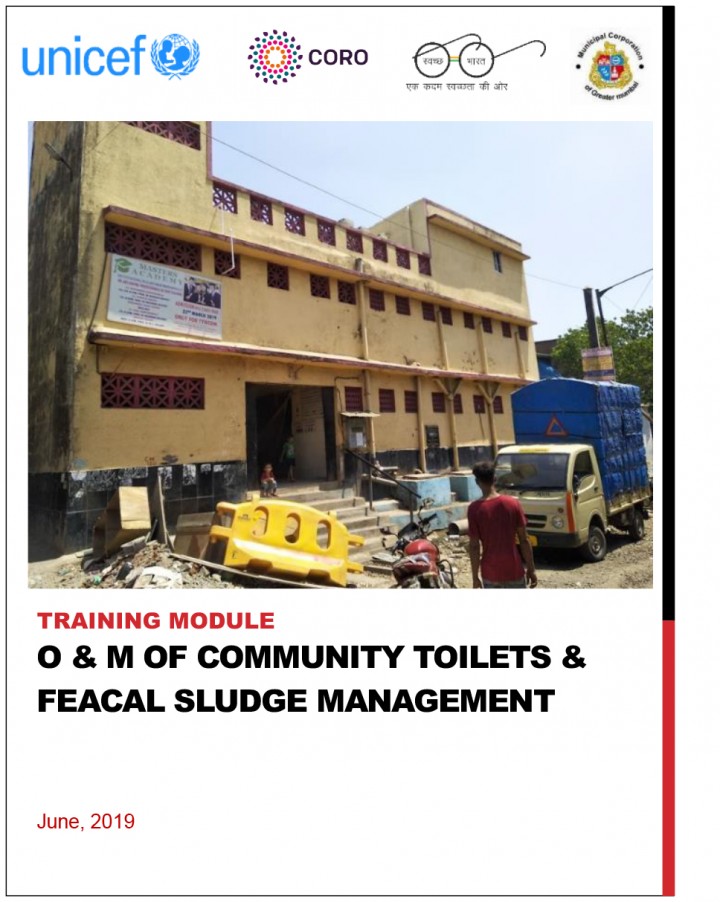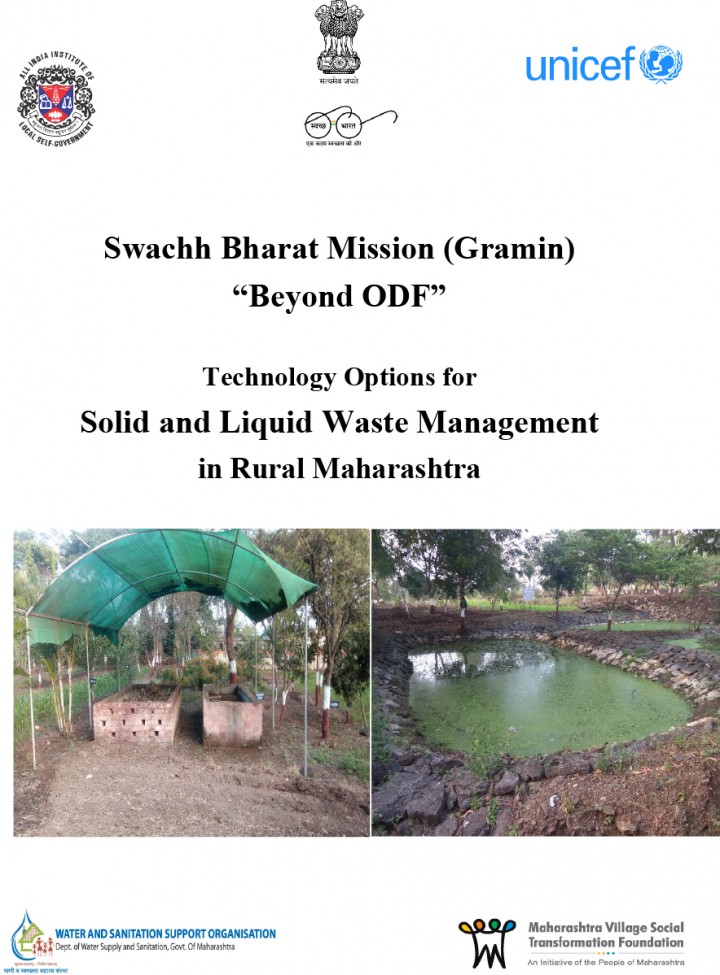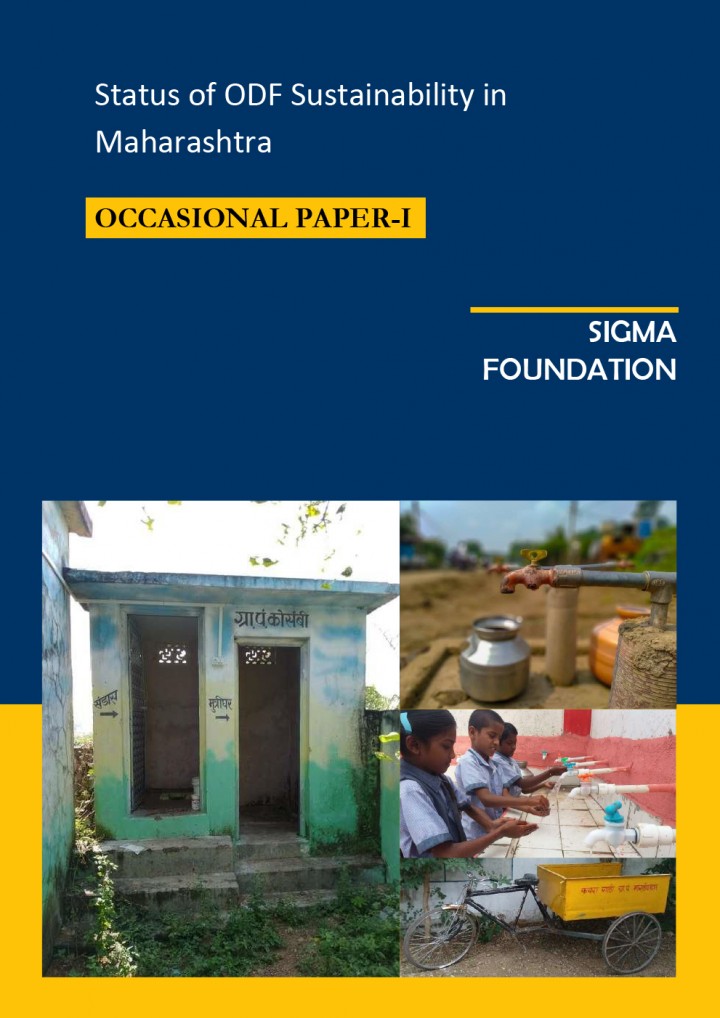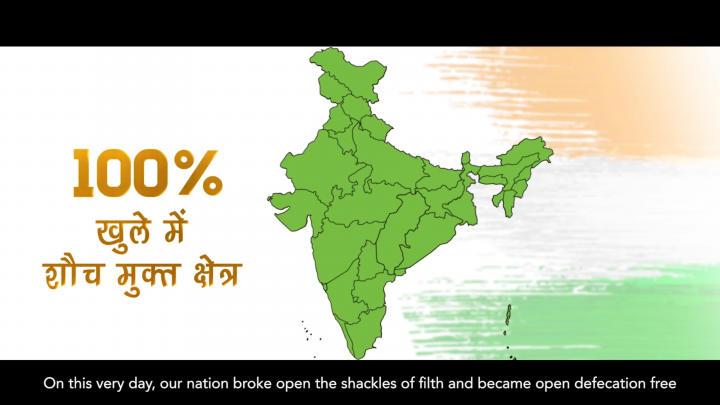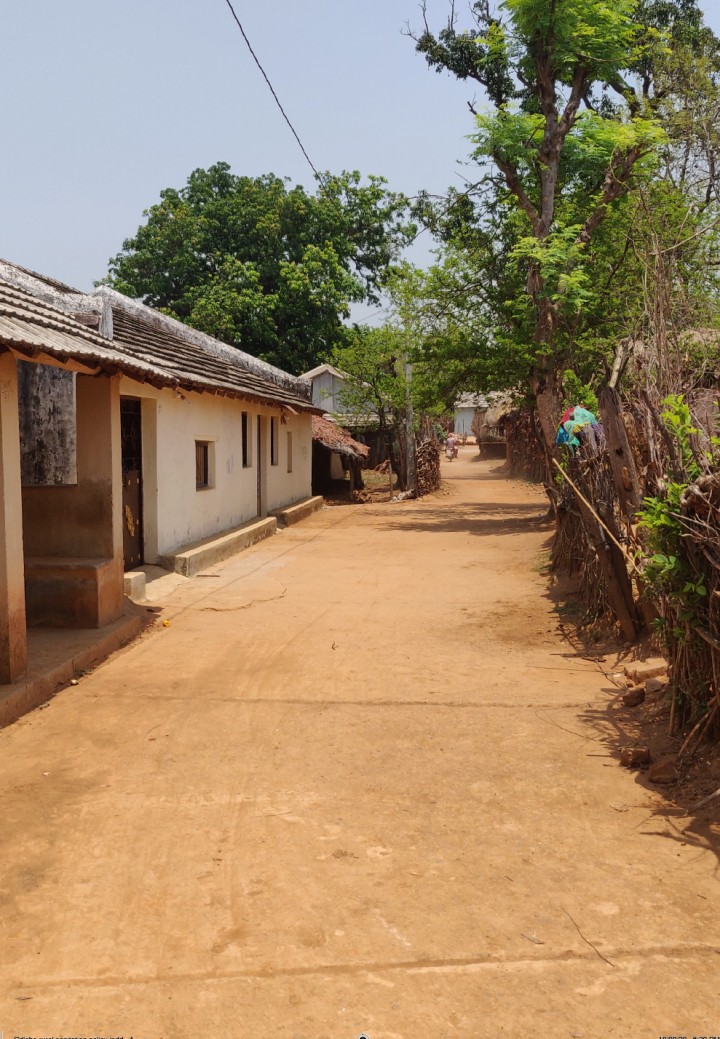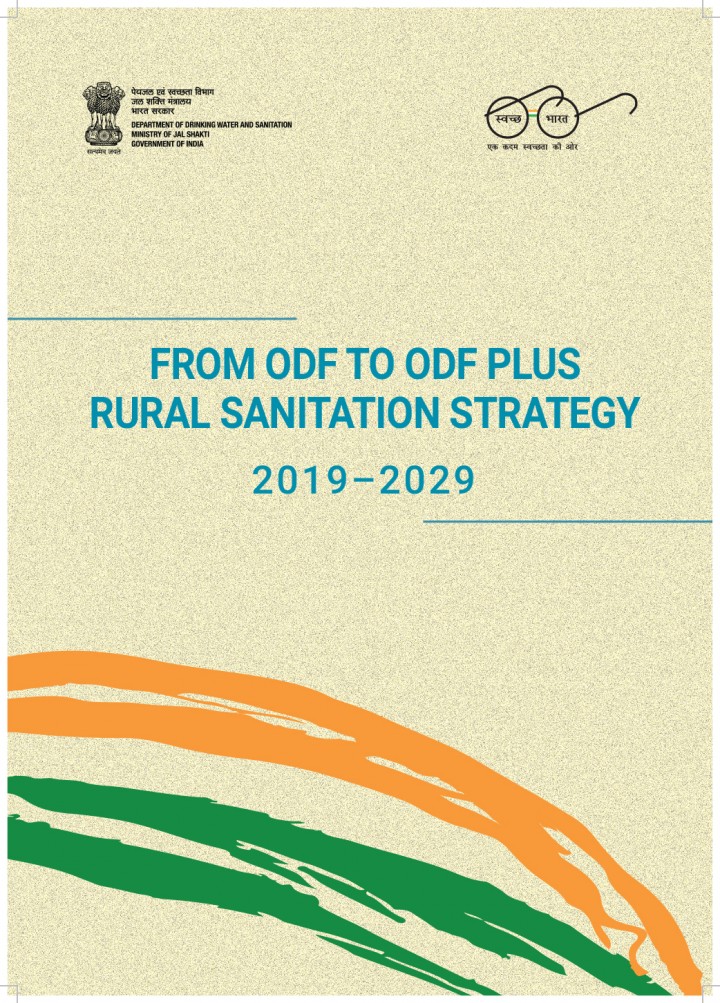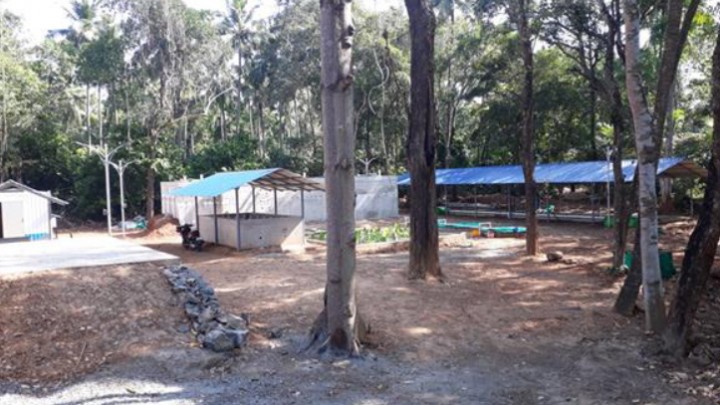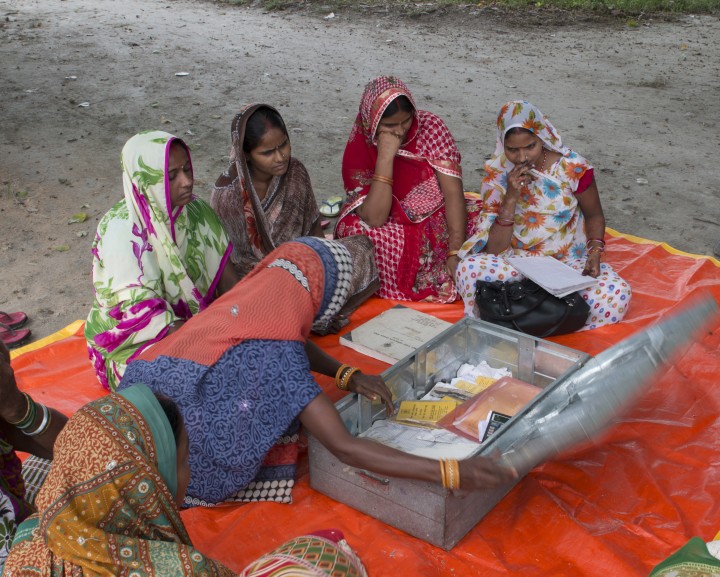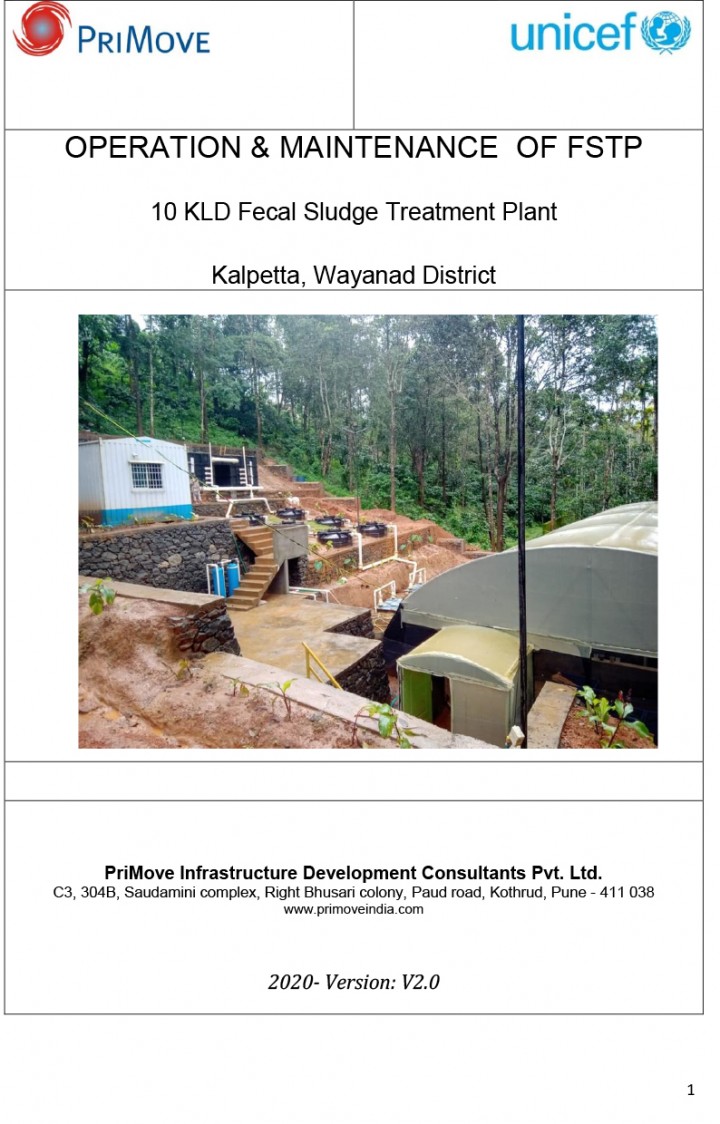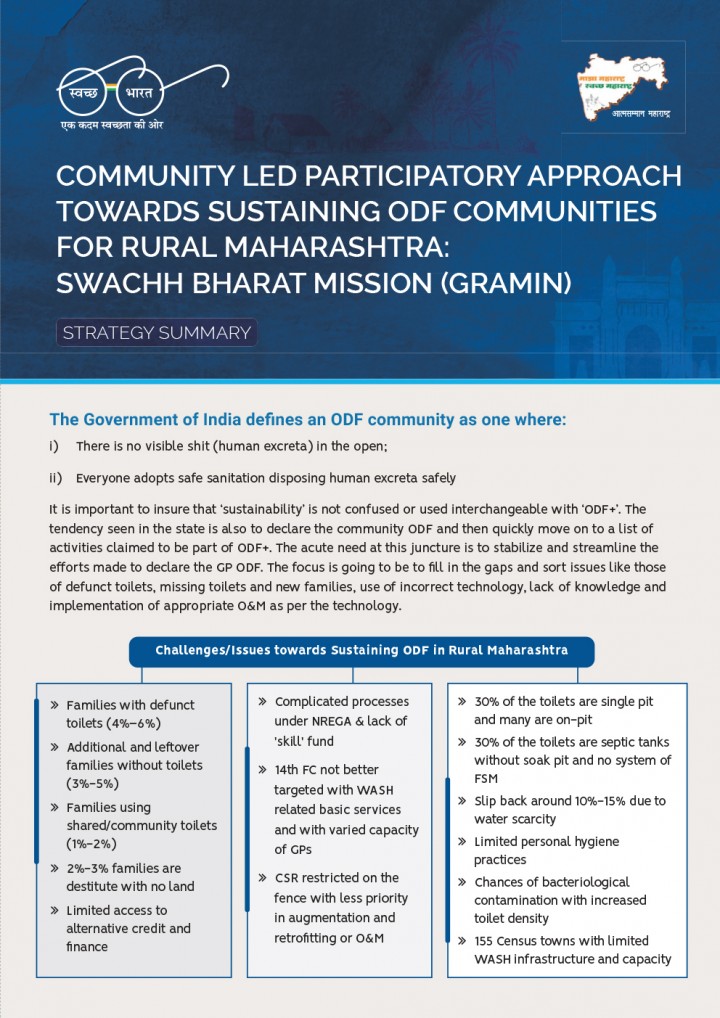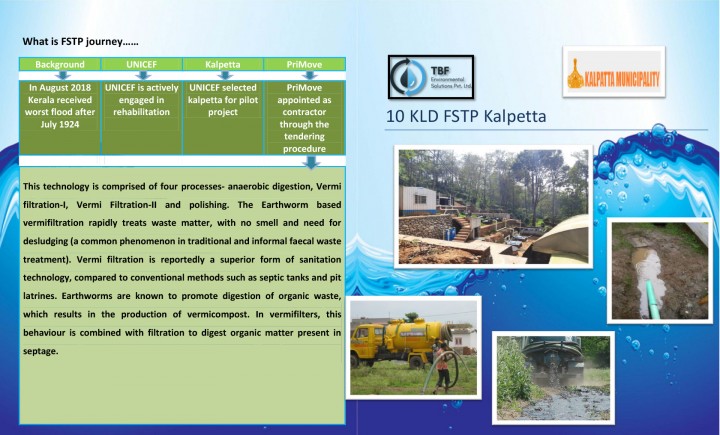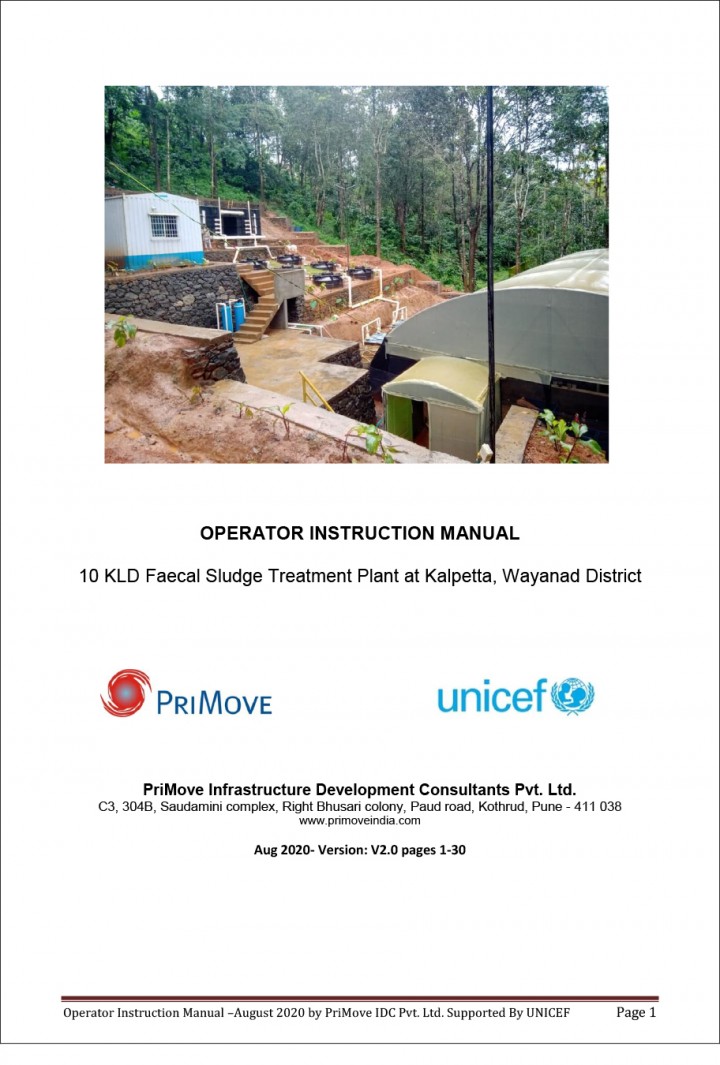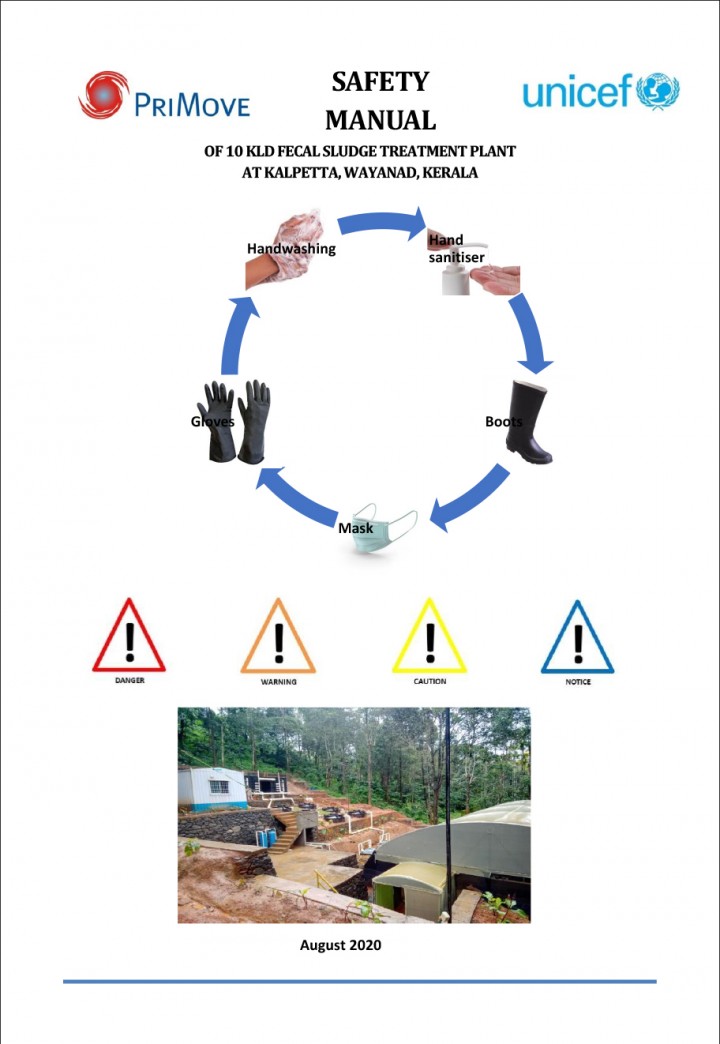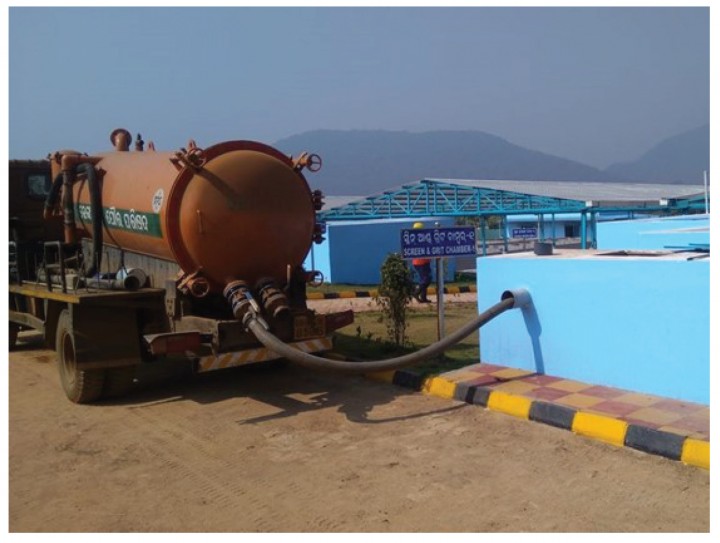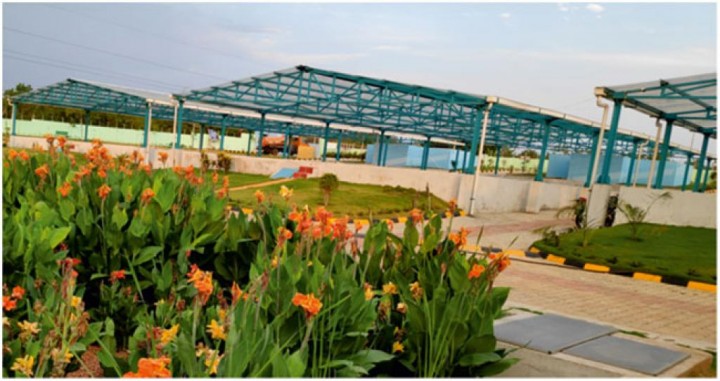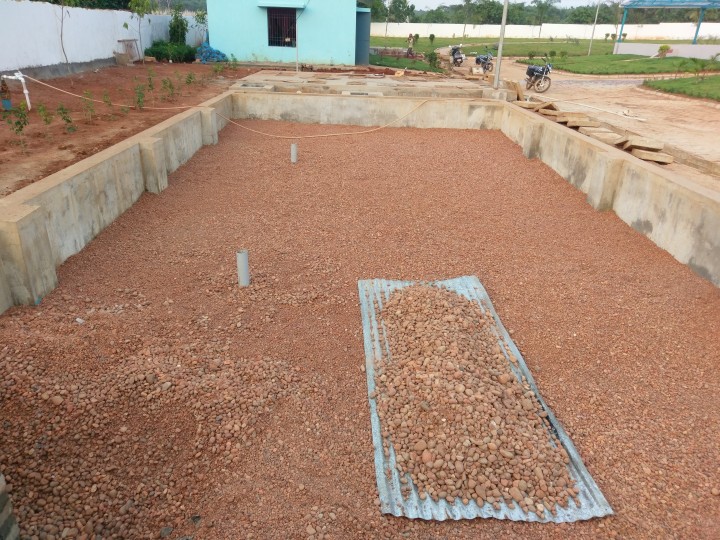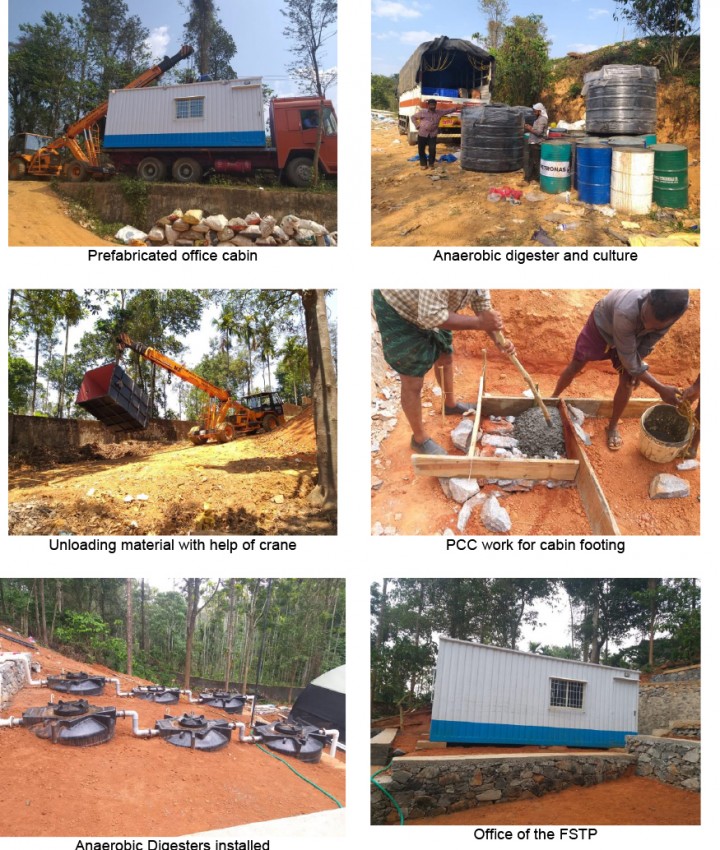All India Institute of Local Self-Governance (2020) Maharashtra Social and Behaviour Change Strategy Guidelines
This document will act as a road map for functionaries at all levels, especially at the district and GP level. The strategy will be developed in the context of the current situation within the state regarding challenges faced and progress made in the last few years on total sanitation. SBCC activities are not conducted in isolation and their effectiveness cannot be measured in isolation either. The […]
Gramalaya (2019) Standard Operating Procedures for Desludging and Rehabilitating Septic Tanks
The aim of this document is to explain the field level procedures in cleaning septictanks and the safe disposal of sludge. There are very few less than 4 major Fecal Sludge Treatment Plants in the state of Kerala. The floods of 2018due to south west monsoon, caused a very great havoc in 13 districts of Kerala by inundating all the wells and septic tanks. The […]
Primove (2019) Training Manual on Sustainable Sanitation Under SBM
This manual begins with the status of sanitation in the state and key observations regarding sanitation followed by the concept, government guidelines and methodology for major stages of ODF are discussed in detail. Later, the components of sustainable sanitation, maintenance and repairs of sanitation facilities, alternative finance options, entrepreneurship development opportunities and concerned methodology is presented in the subsequent sections. The manual also discusses the […]
Pramod Dabrase (2019) Operations and Maintenance Manual for Community Toilets and Faecal Sludge Management
The training focuses on developing capacities of all the stakeholders including operators, service providers, Municipal Corporation, elected representatives etc. This training aims at conveying the key concepts and how to do the operation and maintenance of community toilets and management of feacal sludge in an effective manner, what are the basic non-negotiable elements versus want are the preferred element. The training element are based on […]
Centre for Sustainable Governance, All India Institute of Local Self-Government and UNICEF (2020) Technology Options for Solid and Liquid Waste Management in Rural Maharashtra
The technologies mentioned in this document have been shortlisted based on topographical considerations, technical feasibility cost effectiveness and scalability. Moreover, these technologies should be easy to operate and require minimal intervention of skilled personnel, which is otherwise a limitation in rural areas. The Technical Manual is intended to provide the reader with suggestive Solid and Liquid Waste Management (SLWM) technology options at different levels of the […]
Sigma Foundation (2020) Status of ODF Sustainability in Maharashtra
The Government Maharashtra has taken up an initiative to reform selected rural villages affected by natural calamities like drought and other social, economic, livelihood and infrastructural challenges. This initiative has been started by recruiting CMRD Fellows in each GP for village planning, community participation and effective execution of the schemes according to the plan. SIGMA Foundation in collaboration with UNICEF Maharashtra Field Office has taken up […]
(2020) India Moving from ODF to ODF-S
As the Swachh Bharat Mission ventures into the second phase of its implementation - moving from ODF to ODF Plus – the Ministry of Jal Shakti released a programme inception film that shows how India will transition its efforts sustain the gains of the first phase and achieve a clean living environment through faecal and plastic waste management. The film has been jointly produced by […]
UNICEF (2020) Odisha Rural Sanitation Policy
The Odisha Rural Sanitation Policy 2020 provides a framework aligned to the 5T guiding principles (Teamwork, Technology, Transparency, Time leading to Transformation), with an overarching vision of achieving Swachha Odisha, Sustha Odisha. Accordingly, it sets out a course of action towards (i) sustaining toilet access, usage and hygiene practices, and (ii) safe management of solid and liquid wastes. Central to this approach is ‘people’s participation’ […]
Department of Drinking Water and Sanitation (2019) From ODF to ODF+, Rural Sanitation Strategy 2019 - 2029
This ten year sanitation strategy for rural areas in India, prepared by the Department of Drinking Water and Sanitation (DDWS), Ministry of Jal Shakti, Government of India, in consultation with State Governments and other stakeholders, lays down the framework for achieving this long term vision. The strategy is intended to guide, local governments, policy makers, implementers and all relevant stakeholders including the people of rural […]
Primove Infrastructure Development Consultants (2020) Operation and Maintenance Manual for the Thrissur FSTP
This Manual is needed for the technical persons to be trained as Operators and helpers at the FSTP site at Thrissur. It contains Technical Guidelines for carrying out the works. Vermifiltration is a more efficient method of sanitation relative to septic tanks and pit latrines. Earthworms are well known agents that promote digestion of organic waste, producing vermicompost. The Tiger Biofilter technique is based on […]
Department of Drinking Water and Sanitation, Government of India (2019) Five Day Manual for Panchayati Raj Institutions on water and sanitation
The Government of India (GoI) has launched an iniative to strengthen the capacity of Panchayati Raj Institutions (PRIs) to ensure the sanitaton gains achieved under the Swachh Bharat Mission (Grameen) are sustained. The initiative includes ODF status of communites, taking up of an open defecation free plus (ODF Plus) agenda and improving access to safe and secure water supply through the Jal Jeevan Mission (JJM) […]
Primove Infrastructure Development Consultants (2020) Operation and Maintenance Manual for the Wayanad FSTP
Kalpetta is a town and a municipality in the Wayanad district, state of Kerala, India. The FSTP uses vermifiltration where worm-based sludge treatment is combined with water filtration to digest organic matter present in septage. The worms need only air, water, and sludge (food) to operate efficiently as a part of the vermifiltration system. The Tiger Biofilter technique is based on vermifiltration. The technology uses a […]
Water Supply and Sanitation Organization (2018) Community-Led Participatory Approach Towards Sustaining ODF Communities
It is important to insure that ‘sustainability’ is not confused or used interchangeable with ‘ODF+’. The tendency seen in the state is also to declare the community ODF and then quickly move on to a list of activities claimed to be part of ODF+. The acute need at this juncture is to stabilize and streamline the efforts made to declare the GP ODF. The focus […]
(2019) Poster on Tiger Biofilter FSM Plant
This poster lists the steps in emptying septic tanks and the precautions that need to be undertaken during the process.
Primove Infrastructure Development Consultants (2020) Operators Manual for the Wayanad FSM Plant
"This operator instruction manual is the reference document for the operation and maintenance of the equipment and processes that comprise the tiger bio filter (TBF) based faecal sludge treatment plant (FSTP) at Wayanad, Kerala. This manual will enable the plant operator and helper to run the plant smoothly and assist during site operations and maintenance work."
Primove Infrastructure Development Consultants (2020) Safety Manual for Wayanad FSTP
This Manual is needed for the technical persons to be trained as Operators and helpers at the FSTP site at Waynad. It contains Technical Guidelines for carrying out the works. A series of manuals are made, Operation and maintenance manual and Operator Instruction manual are the others. This Health and Safety Rulebook is presented for the use of all employees of the Faecal Sludge Treatment plant […]
UNICEF and Centre for Policy Research (2020) Solid and Liquid Waste Management in Odisha
The brochure summarizes the FSM project piloted in Dhenkanal, Odisha, and the journey the district undertook to become one of first districts to have 'safely managed' sanitation systems in India. The Project is being implemented in the Dhenkanal district in the state of Odisha in consultation and partnership with the Panchayat Raj and Drinking Water Department and Housing and Urban Development Department, Government of Odisha, the […]
UNICEF and Centre for Policy Research (2020) Towards a Sustha and Swachha Rural Dhenkanal Institutionalizing Faecal Sludge Management for Achieving ODF Plus
As a first step toward the goal of clean and sanitised villages, the state has issued the Odisha Rural Sanitation Policy in October 2020 that guides and enables sanitation interventions in rural areas over a ten-year horizon. In operationalising the Policy and in line with the objectives of SBM-G Phase II, Dhenkanal district in the state, with support from UNICEF and the Centre for Policy […]
UNICEF (2020) Rural Odisha improves FSM
The case study depicts how a concerted action from the government, UNICEF, Centre for Policy Research, and the Gates Foundation was called for setting up a faecal sludge treatment plant in Dhenkanal district of Odisha.
UNICEF (2019) Report on Wayanad FSTP
Wayanad's pilot project on faecal sludge management (FSM) has encouraged risk-informed programming, innovation, in the sanitation sector. A unique waste management system has been commissioned in Wayanad that uses vermifiltration (use of worms) to process waste and turn it into compost and useable greywater.
